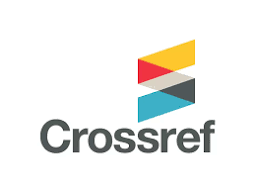Prevalence and associated factors of ChatGPT use in medical education and clinical practice
DOI:
https://doi.org/10.59736/IJP.23.03.960Keywords:
Artificial Intelligence, Clinical Practice, Medical Education, Medical StudentsAbstract
Background: Healthcare education has witnessed significant transformations, with artificial intelligence (AI) playing an increasing role in medical imaging, diagnostics, and decision-making. ChatGPT, an AI-powered language model, is gaining popularity among medical students and physicians. However, excessive reliance on such tools may impact critical thinking and reduce dependence on professional judgment. Our objectives are to determine the prevalence of ChatGPT use among medical students and senior doctors in educational and clinical settings. To explore factors associated with its use, including its perceived impact on academic performance, decision-making, and information reliability.
Methods: This cross sectional study includes four medical institutions in Peshawar, Khyber Pakhtunkhwa, Pakistan: Northwest School of Medicine, Pak International Medical College, Rehman Medical College, and Khyber Girl Medical College, and two dental colleges: Sardar Begum Dental College and Rehman College of Dentistry. It included 370 participants (176 males and 194 females). The participants were selected using a non-probability sampling technique.
Results: ChatGPT use was widespread among students and doctors. However, there was no significant association between its use and academic performance (p>0.05). Fifth-year students showed a positive association with using ChatGPT for self-diagnosis (p<0.05). Fourth-year students reported it as a reliable source of information (p<0.01), while second-year students strongly favored it as a reputable source (p<0.001). Practitioners generally disagreed with these views.
Conclusion: ChatGPT is increasingly used in medical education and practice. While it offers support in learning and decision-making, overdependence may hinder critical thinking. It should be viewed as a complementary tool, not a replacement, for expert medical judgment.
References
Tangadulrat P, Sono S, Tangtrakulwanich B. Using ChatGPT for clinical practice and medical education: cross-sectional survey of medical students’ and physicians’ perceptions. JMIR Med Educ. 2023; 9:e50658. Doi: 10.2196/50658.
Gandhi AP, Joesph FK, Rajagopal V, et al. Performance of ChatGPT on the India undergraduate community medicine examination: cross-sectional study. JMIR Form Res. 2024; 8:e49964. Doi: 10.2196/49964.
Choudhury A, Elkefi S, Tounsi A. Exploring factors influencing user perspective of ChatGPT as a technology that assists in healthcare decision making: a cross-sectional survey study. PLoS One. 2024; 19:e0296151. doi:10.1371/journal.pone.0296151.
Shahsavar Y, Choudhury A. The role of AI chatbots in healthcare: a study on user intentions to utilize ChatGPT for self-diagnosis. JMIR Preprints. 2023. Doi: 10.2196/47564.
Safranek CW, Sidamon-Eristoff AE, Gilson A, Chartash D. The role of large language models in medical education: applications and implications. JMIR Med Educ. 2023; 9:e50945.
Wang X, Sanders HM, Liu Y, et al. ChatGPT: promise and challenges for deployment in low- and middle-income countries. Lancet. 2023; 341.
Kim HW, Shin DH, Kim J, et al. Assessing the performance of ChatGPT responses to questions related to epilepsy: a cross-sectional study on natural language processing and medical information retrieval. Seizure. 2024; 114:1-8. doi:10.1016/j.seizure.2023.11.013
Examining real-world medication consultations and drug-herb interactions: ChatGPT performance evaluation. JMIR Med Educ. 2023; 9:e48433. Doi: 10.2196/48433.
Aly T, Aly A. ChatGPT in preparation of the scientific papers in spinal cord injuries in the Middle East. IJCMCR. 2023; 33:2.
Sallam M, Salim NA, Barakat M, et al. Assessing health students' attitudes and usage of ChatGPT in Jordan: validation study. JMIR Med Educ. 2023;9:e48254.
Naureen S, Kiani HG, Naureen N, Shafique M. Comparison of knowledge and attitude towards CIN first in first- and final-year dental students. J Rawalpindi Med Coll. 2024;28(2):12-24.
Maab R, Ahmed S, Khan T, et al. Awareness and usage of AI technologies in medical education. J AI Med. 2023; 9:12-24.
Saad M, Ali F, Khan R, et al. Evaluating ChatGPT’s utility in orthopedic education: a case study. Orthop Res J. 2023; 14:45-58.
Abu Hammour A, Smith J, Brown K, et al. Over-reliance on AI in medical education: risks and mitigation strategies. Med Teach. 2023; 41:567-75.
Johnson A, Lee S, Patel M, et al. The role of AI in streamlining clinical administrative tasks. J Med Innov. 2023; 12:45-56.
Patel R, Gupta S, Kumar A, et al. Integrating AI literacy into medical curricula: a call to action. Med Educ Today. 2023; 34:78-89.
Smith L, Taylor R, Evans P, et al. Ethical implications of AI in healthcare: a framework for safe implementation. J Med Ethics. 2023; 15:112-25.
Brown T, Wilson D, Clark E, et al. A systematic review of AI tools in diagnostic medicine. J Diagn Technol. 2023; 18:23-35.
Gupta S, Ali F, Khan T, et al. Bridging healthcare gaps with AI: the role of ChatGPT in low-resource settings. Glob Health Innov. 2023;7(2):67-79
Downloads
Published
Issue
Section
License
Copyright (c) 2025 Nadia Qazi, Bushra Hafeez, Ammar Ahmed, Nimra Saleem , Hudaina Maryam, Muhammad Usman

This work is licensed under a Creative Commons Attribution-NonCommercial 4.0 International License.
Readers may “Share-copy and redistribute the material in any medium or format” and “Adapt-remix, transform, and build upon the material”. The readers must give appropriate credit to the source of the material and indicate if changes were made to the material. Readers may not use the material for commercial purpose. The readers may not apply legal terms or technological measures that legally restrict others from doing anything the license permits.

